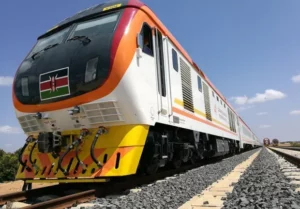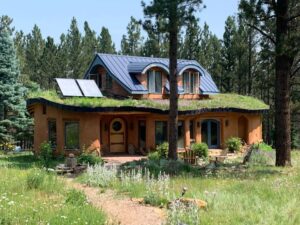This comprehensive Backpacking Kenya Guide has everything you need to know about the local cuisine, transportation, and activities to make the most of your trip, from safaris to cultural tours.
Kenya is a popular destination for backpackers looking to experience the beauty and culture of East Africa. From the stunning landscapes of the Maasai Mara National Reserve to the white sandy beaches of the Indian Ocean, there is something for everyone in Kenya.
Backpacking Kenya Guide
This guide will cover everything you need to know to plan a backpacking trip to Kenya.
Getting to Kenya
Several international airports serve Kenya, including Jomo Kenyatta International Airport in Nairobi and Moi International Airport in Mombasa. If you are traveling from North America or Europe, you will likely have to make a connecting flight to another African city, such as Addis Ababa or Johannesburg.
Best Time to Visit Kenya
The best time to visit Kenya depends on the type of experience you are looking for. The country experiences two rainy seasons, from March to May and October to December, making travel difficult. The dry season, from June to September and from January to February, is the best time to visit if you want to go on safari or explore the country’s national parks.
Visa Requirements for Kenya
Most visitors to Kenya will need a visa to enter the country. Visas can be obtained online through the e-visa portal or on arrival at the airport. A single-entry visa costs $51, valid for 90 days from the issue date. It is important to note that visa requirements can change anytime, so checking the latest information before travel is best.
- 👉Check Also: Kenya Visa: How to Apply for eVisa Kenya Online
Health in Kenya
Before embarking on a Backpacking Kenya trip, taking some health and safety precautions is essential. Here are some tips:
- Vaccinations: Ensure you are current on routine vaccinations, such as measles, mumps, and rubella, as well as travel-specific vaccines, such as yellow fever and typhoid.
- Malaria: Malaria is a risk in Kenya, especially in rural areas. Take preventative measures, such as using insect repellent and sleeping under mosquito nets.
- Drinking Water: Tap water in Kenya is not safe to drink. Stick to bottled or filtered water and avoid ice cubes and raw fruits and vegetables.
Safety When Backpacking Kenya
Kenya is generally a safe country for travelers, but it is vital to take precautions to ensure your safety. Here are some tips:
- Avoid walking alone at night, especially in urban areas.
- Keep your belongings secure and be aware of your surroundings.
- Use a reputable taxi service and avoid hailing taxis on the street.
- Follow the advice of local authorities and avoid political demonstrations.
- Be cautious when traveling in remote areas, especially near the borders of Somalia and Ethiopia.
Backpacking Kenya Guide on Accommodation
Various accommodation options are available for backpackers in Kenya. They range from budget-friendly hostels to luxury lodges. Below are some popular options for places to stay when Backpacking Kenya.
1. Camping
Camping is an excellent option for budget-conscious travelers who want to experience the beauty of Kenya’s national parks and reserves. Many campsites offer basic facilities, such as toilets and showers; some even rent tents and camping equipment.
2. Hostels
Hostels are famous for backpackers, especially in urban areas like Nairobi and Mombasa. They offer budget-friendly accommodations and a chance to meet other travelers.
3. Guesthouses
Guesthouses are small, family-run accommodations that offer a more personal experience than hotels. They are often located in residential areas and can provide insight into local culture and customs.
4. Hotels
Kenya has many hotels, from budget-friendly options to luxury resorts. Hotels are a good option if you are looking for more privacy and comfort.
5. Eco-lodges
Several eco-lodges in Kenya offer environmentally-friendly accommodations and activities for travelers interested in sustainable tourism.
🏕️ Make Your Hotel Booking in Kenya Today
Food and Drink in Kenya
Several cultures, including Indian, British, and African, influence Kenyan cuisine. Some popular dishes and drinks include the following.
- Ugali: Ugali is a staple food in Kenya, made from maize flour and water. It is often served with stews or vegetables.
- Nyama Choma: This is a popular grilled meat dish, often made with beef or goat.
- Samosas are fried pastries filled with meat, vegetables, or cheese. They are a popular snack in Kenya.
- Chapati: This type of flatbread is often served with stews or curries.
- Kenyan coffee: Kenya is known for its high-quality coffee grown in its highlands. It is a must-try for coffee lovers.
In terms of drinks, tea is the most popular beverage in Kenya. However, several local beers, such as Tusker and White Cap, are worth trying. In addition to the local cuisine, there are plenty of international restaurants and fast-food chains in Kenya’s major cities.
Transportation
There are several transportation options available for backpackers in Kenya. The most popular way to get around is by matatu, minivans operating as public transport. They can be crowded and uncomfortable, but they are also cheap and a great way to experience local life. Private taxis are also available, but they are more expensive.
If you are planning to visit the national parks, you may want to consider renting a car. However, it is essential to note that driving in Kenya can be challenging due to poor road conditions and aggressive drivers. Another option is to join a guided tour, which can provide transportation and a knowledgeable guide.
Activities in Kenya
Kenya is known for its wildlife and natural beauty, but plenty of cultural and historical attractions exist to explore. Here are some popular activities:
#1 Wildlife Safaris
A visit to Kenya would not be complete without a safari. The Maasai Mara National Reserve is one of Kenya’s most famous safari destinations, but several other parks and reserves exist.
#2 Beaches
Kenya has several beautiful beaches along its coast, including Diani Beach and Lamu Island.
#3 Hiking
Mount Kenya is the highest mountain in Kenya and a popular destination for hikers. There are several trekking routes, ranging from easy to challenging.
#4 Cultural tours
Several cultural tours in Kenya provide insight into the country’s diverse cultures and traditions. The Maasai Mara and Samburu tribes are two of the most well-known.
#5 Historical sites
Kenya has a rich history, and several historical sites exist to explore, including Fort Jesus in Mombasa and the ruins of Gedi on the coast.
Tourist Attractions in Kenya
Kenya has a lot to offer in terms of tourist attractions. Here are some of the most popular:
1. Maasai Mara National Reserve
This is one of Kenya’s most famous national parks, known for its abundant wildlife and annual wildebeest migration. Visitors can go on safari drives to see lions, elephants, zebras, and other animals.
2. Amboseli National Park
This park is near Mount Kilimanjaro and offers stunning mountain views. It is also home to a large elephant population and is a great place to see these majestic animals up close.
3. Lamu Island
This small island off the coast of Kenya is a UNESCO World Heritage Site known for its beautiful beaches, historic architecture, and vibrant culture.
4. Lake Nakuru National Park
This park is home to a large population of pink flamingos, a stunning sight. Visitors can also see other wildlife, such as baboons, giraffes, and rhinos.
5. Nairobi City
Kenya’s capital city is a bustling metropolis with plenty to see and do. Visitors can explore the city’s markets, museums, and restaurants or visit the nearby Nairobi National Park to see wildlife.
- 👉Check Also: Top 10 Best Things to Do in Kenya
Final Thoughts: Kenya Backpacking Guide
In conclusion, Kenya is a beautiful and diverse country with plenty to offer backpackers. Whether you are interested in wildlife, culture, or adventure, there is something for everyone in Kenya. Be sure to take the necessary health and safety precautions, choose your accommodations wisely, and plan your activities ahead of time to make the most of your trip.

 See Also:
See Also: 

